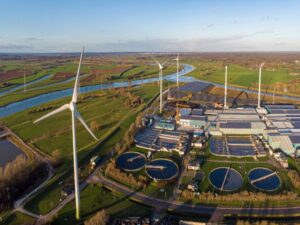In the previous years, South Africa has seen commercial and agricultural businesses have been facing many battles on all fronts – whether it is water scarcity, increasing electricity costs, or perpetual load-shedding.
According to banking experts, a rising number of businesses are searching for renewable energy and sustainable practices to help meet their Sustainable Development Goals.
Businesses are beginning to see the potential in saving on rising electricity costs, mitigating against load-shedding, and having a caring attitude toward the environment.
Nedbank Business Banking Head of Sustainability, Mark Boshoff lists three ways businesses can use to reduce the costs of renewable energy and begin looking at renewables, sustainability, and climate resilience in South Africa.
- Minor intercession should be considered
Identify the small issues that have easy solutions by determining which efficiencies can be gained by minor interventions such as repairing water leaks, switching off machinery when not in use, and the replacement of equipment that uses up a significant amount of energy.
- Acquire professional advice
Knowledge and resources within the sustainability market have grown across the industry. Businesses are able to do this in multiple ways. Obtaining more than one quote from trusted suppliers, employing an independent energy advisor or auditor to determine the needs and actions required to lessen consumption, and utilising accredited installers and vendors.
- Collaborate with a bank with shared goals
“Global sustainability issues including climate change, population growth, and resource scarcity require the finance sector to lead the charge to adapt as businesses operating in a closed ecology and promote new economic models,” says Boshoff.
Nedbank is leading the change in discovering innovative funding solutions to assist businesses in investing in sustainable practices, equipment, and technology. It has also made its own commitments to meet United Nations’ SDG goals ahead of 2050, including becoming 100% carbon neutral.
“Our financing products assist our clients to create sustainable value through the reduction of their environmental impacts and enabling them to operate more efficiently and safely,” says Boshoff.
Collaborating with a bank can provide expertise in this area also puts businesses in touch with trusted suppliers and vendors and ensures investment in sustainability will be profitable for businesses in the long run.







